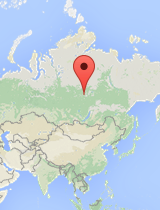Medical Summary
The health risk information presented here is summarized from Shoreland Travax®, a decision-support tool used by health care providers to perform a detailed health risk analysis based on specific locations, individual travel styles, and traveler risk behaviors. Travax provides practitioners current, independently researched malaria risk and prevention recommendations in a map-based format that goes beyond the annual WHO and US CDC statements included here. Not included here are current reports from Travax of disease outbreaks or environmental events that may pose elevated risks to travelers’ health and safety. The Providers section of this site offers a directory of health care providers who utilize Shoreland Travax for travel health counseling. Learn more about the detailed reports and maps available from these practitioners (includes links to samples).
General Information
Russia is a developing nation classified as upper middle income. Located in northern Asia (along the Arctic and the North Pacific Oceans), the climate classifications range from humid cold (no dry season) to cold polar (tundra and ice), with cooler temperatures in some high-altitude areas.
Vaccinations
Routine vaccinations are essential due to a persistent global rise of vaccine-preventable diseases (especially markedly high rates of diphtheria, pertussis, and measles). Prior to travel, travelers should be up-to-date with the age-appropriate and risk-based routine vaccinations recommended by their home country, which may include:
- COVID-19
- H. influenzae type B (Hib)
- Hepatitis A
- Hepatitis B: Protection is especially important for those at increased risk.
- Herpes zoster
- Human papillomavirus
- Influenza
- Measles, mumps, rubella: A single early dose is recommended for travelers aged 6-11 months.
- Meningococcal
- Pneumococcal
- Polio
- Rotavirus
- Tetanus, diphtheria, pertussis: Tdap preferred; consider an early pertussis booster for high-risk travelers.
- Varicella
Depending on your itinerary, your personal risk factors, and the length of your visit, your health care provider may offer you vaccination against Japanese encephalitis, rabies, or tick-borne encephalitis.
Malaria
See also: Library article for Malaria
The following is current information as reported by the World Health Organization (WHO) and the US Centers for Disease Control (CDC):
WHO—International Travel and Health (current online update, Country List)
No statement given.CDC—Health Information for International Travel (current online edition)
No malaria transmission.
Other Concerns
Travelers' Diarrhea
See also: Library article for Travelers' Diarrhea
Moderate risk exists throughout the country, with minimal risk in deluxe accommodations. Community sanitation and food safety measures may be inadequate. Some itineraries (e.g., remote destinations, austere accommodations) and activities (e.g., ecotourism, eating street or local-market food) further increase risk.
Travelers should observe food and beverage precautions, which reduce the likelihood of illness.
Travelers should carry loperamide for self-treatment of diarrhea and, if risk is moderate to high, an antibiotic to add if diarrhea is severe. Consult a knowledgeable health care provider regarding which antibiotic is appropriate for you and most effective for your destination.
Other Food-Borne Illnesses
Precautions to prevent brucellosis may be needed.
Insect- and Arthropod-Borne Diseases
Leishmaniasis, Lyme disease, West Nile virus may pose a risk. Personal protective measures are important.
Other Disease and Health Risks
Additional concerns include altitude illness, anthrax disease, avian influenza, Crimean-Congo hemorrhagic fever, hantavirus, hepatitis C, leptospirosis, medication restrictions, plague, radiation, sexually transmitted infections, tuberculosis.
Safety and Security
See also: Library article for Safety and Security
Key Safety Risks
- Road conditions and traffic collisions
- Domestic and/or international air travel
- Petty crime
- Food and beverage spiking
- Scams
- Arbitrary arrest/unlawful detention
- Cybersecurity
Key Security Threats
- Terrorist attacks by domestic and/or transnational groups, which may target airports
- Potential spillover of armed conflict
- Cross-border threats in areas bordering Georgia and Ukraine
- Explosions in public places
- Occasional violent crime
- Kidnapping/hostage taking, which may target foreign nationals
Emergency Contacts
The national emergency number is 112.

